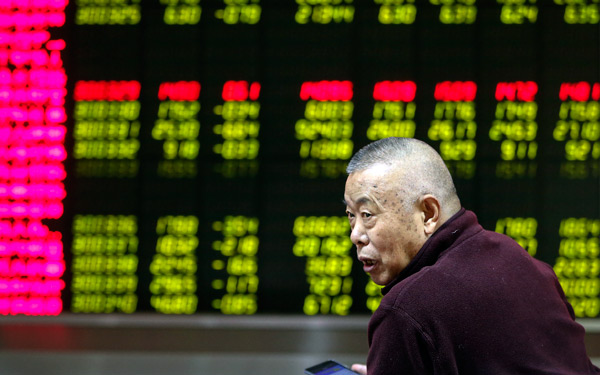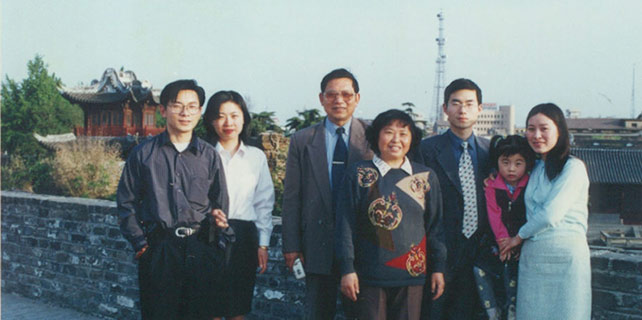Stocks fall slightly over geopolitical uncertainty
 |
|
An investor checks out stock movements at a brokerage in Beijing on Friday, the first trading day of the Year of the Rooster. [Photo/China Daily] |
Investors also seen taking profits from gains made before holiday break
The Chinese mainland stock market slumped slightly and its transaction volume reached a two-year low on Friday, the first trading day in the Year of the Rooster, as a result of profit-taking and investors' sentiment affected by uncertainties arising during the seven-day holiday, said analysts.
The Shanghai Composite Index closed at 3,140.17 points, down 0.6 percent, with transaction volume of 108 billion yuan ($15.76 billion). The Shenzhen Component Index closed at 10,004.84 points, down 0.47 percent, with transaction volume of 132.1 billion yuan.
Technology sector companies gained the most. Shanghai-listed equipment system solutions provider PNC Solutions Co Ltd gained 10 percent to 6.44 yuan. Share prices of gold-related companies also rose as demands for risk-hedging grew.
Mining, nonferrous metals and cement were among the sectors with most losses.
"The A-share market gained for four consecutive days before the Lunar New Year holiday, so the first trading day of the new lunar year is a good time for profit-taking and selling, which is not very surprising. Investors' concerns over uncertainties also cooled sentiment for trading," said a research note from Essence Securities Co.
Geopolitical uncertainties were the major reasons for investors' concerns since a handful of events and accidents occurred during the seven-day holiday break, including uncertainties over US President Donald Trump's policies and the Federal Reserve's next move, a TF Securities research note said.
"The A-share market is likely to further fluctuate in February, but opportunities remain. The manufacturing, agriculture, steelmaking and shipbuilding sectors are likely to see policies introduced in March to accelerate reforms and enhance efficiency. Also, consumption-driven sectors, particularly tourism, entertainment and foods and beverages, are likely to post profit growth thanks to growing spending during the Spring Festival," said a Sinolink Securities market review on Friday.
In Hong Kong, the benchmark Hang Seng index dropped 0.5 percent, to 23,072.64 points, while the Hong Kong China Enterprises Index lost 0.2 percent, to 9,682.12 points.
The main index lost 1.2 percent in the week.
Most sectors fell in the city, led by losses among coal miners and steel firms, which were hurt by slumping commodity prices.
Reuters contributed to this story.















